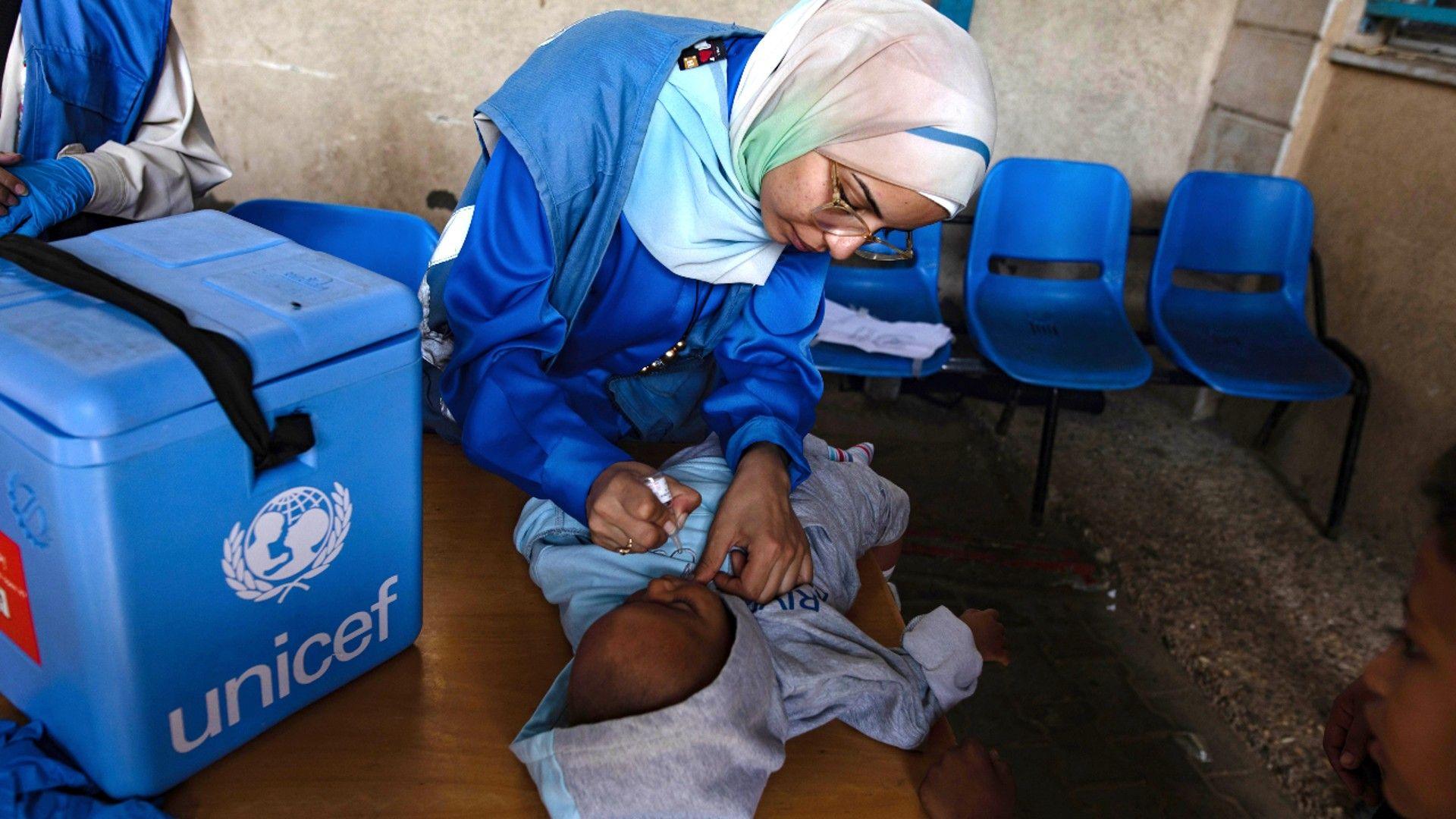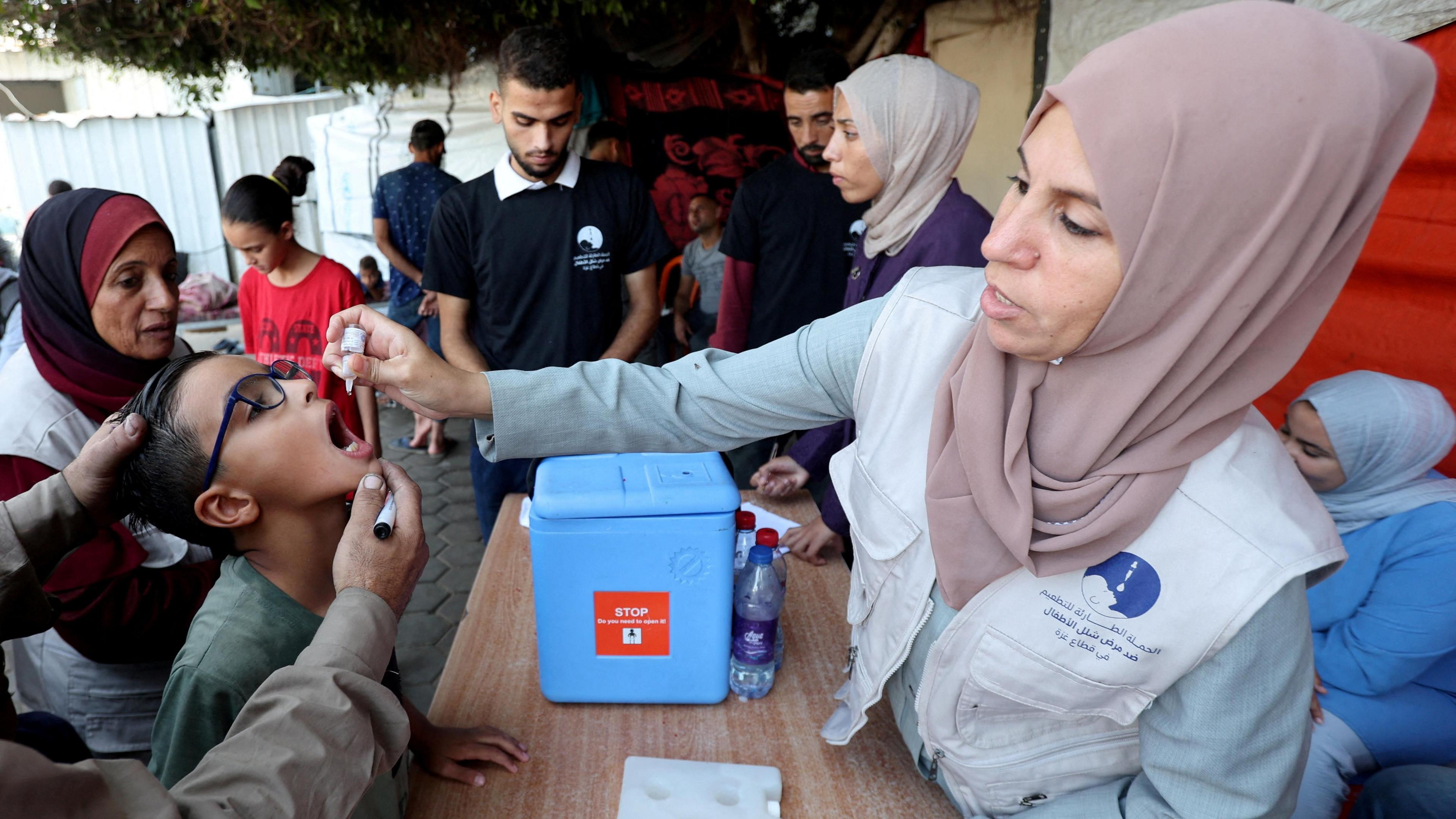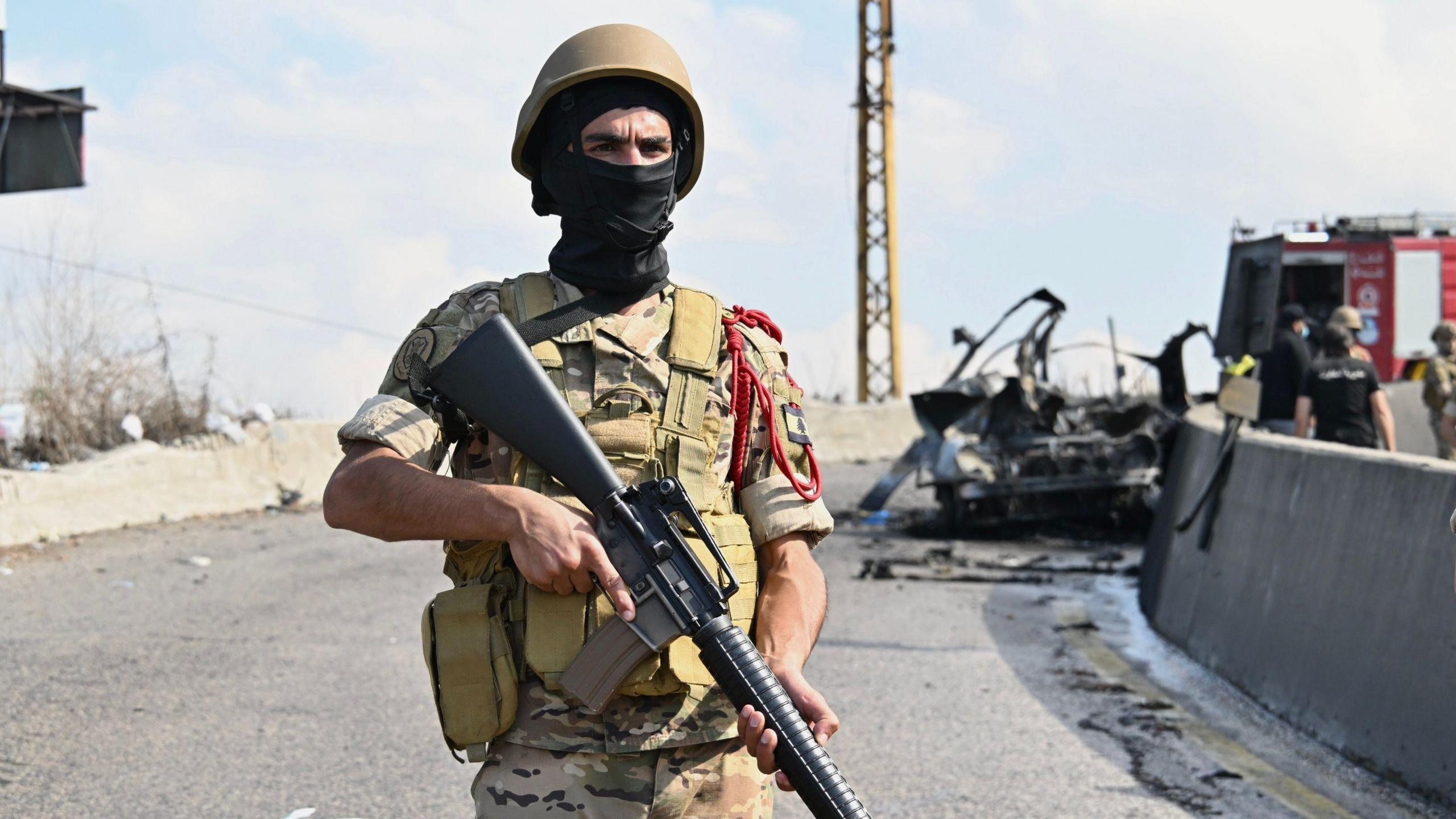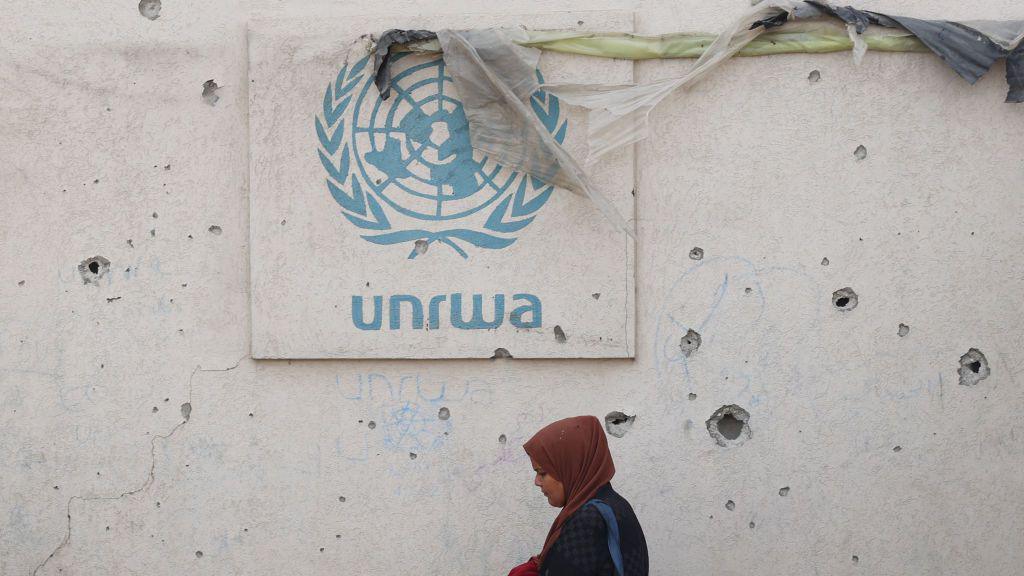Gaza polio vaccinations to resume after WHO reports strike on clinic

More than 442,000 children in Gaza received a second dose of the vaccine last month
- Published
A polio vaccination campaign in north Gaza is expected to resume on Sunday, a day after the World Health Organization (WHO) said six people, including four children, were injured following a strike on the Sheikh Radwan clinic.
The agency did not say who was responsible for the attack but an official from Gaza's civil defence agency told AFP news agency it was carried out by an Israeli quadcopter. Israel said it is investigating but does not believe it was responsible.
Unicef, the UN's children's agency which is helping to lead the vaccination rollout, described the strike on the Sheikh Radwan clinic as "another example of the indiscriminate strikes on civilians".
The second phase of the vaccine rollout began on Saturday after being postponed in October due to intense Israeli bombardments, mass displacement and lack of access in the region.
Gaza recorded its first case of polio in 25 years in August, which left a baby boy paralysed and prompted the rollout of the programme.
The immunisations are resuming as 15 UN and humanitarian organisations have described the situation in north Gaza as "apocalyptic" nearly a month after an Israeli ground offensive began.
A humanitarian pause in the fighting has been agreed upon to allow vaccinations to restart in Gaza City, the WHO said. The campaign will run for three days.
In a post on X on Saturday, WHO chief Tedros Ghebreyesus said the centre was struck "while parents were bringing their children to the life-saving polio vaccination in an area where a humanitarian pause was agreed".
In a separate incident in Jabalia, Unicef says a car driven by a staff member “came under fire by what we believe to be a quadcopter”, according to the agency's head, Catherine Russell.
She said the driver was unhurt but was left “deeply shaken” and called for Israel to launch an investigation.
Vaccine targets 'unlikely'
About 15,000 children under 10 years old in towns across north Gaza, such as Jabalia, Beit Lahia and Beit Hanoun, "still remain inaccessible" and will be missed by the vaccination campaign, compromising its effectiveness, the agency said.
The WHO had aimed to give 119,000 children in the area a second dose of the oral polio vaccine.
The agency added that achieving this target "is now unlikely due to access constraints".
The first round of the vaccine campaign successfully reached 559,000 children under 10 years old over three phases in south, central and north Gaza between 1 and 12 September, during which there were local “humanitarian pauses” agreed by Israel and Palestinian groups.
However, the area agreed in the latest humanitarian pause "has been substantially reduced" compared to the first round of vaccinations and is now limited to just Gaza City, according to the WHO.
From the start of the polio vaccination campaign in Gaza, medical experts stressed that delays in administering the second dose could jeopardise overall efforts to halt transmission of the contagious, potentially deadly disease.
To interrupt transmission, at least 90% of all children need to be given a minimum of two doses.
The UN human rights chief said last week that the Gaza war's “darkest moment” is unfolding in the north of the territory.
Hundreds of people have reportedly been killed since the Israeli military launched a ground offensive in Beit Lahia as well as neighbouring Jabalia and Beit Hanoun on 6 October, saying it was acting against regrouping Hamas fighters.
At least 100,000 people have been forced to evacuate from north Gaza towards Gaza City for safety, the WHO said.
The joint statement from UN agencies, including the WHO, released on Friday, said the situation was "apocalyptic", with the entire Palestinian population in the area "at imminent risk of dying from disease, famine and violence".
The UN estimates that about 100,000 residents remain in dire conditions, with severe shortages of food, water and medical supplies.
The US warned Israel this week to immediately increase humanitarian aid into Gaza as a deadline approaches to boost aid or face cuts to American military assistance. The US envoy to the UN said on Tuesday that Israel's words "must be matched by action", which was "not happening".
Israel launched a campaign to destroy Hamas in response to the group's attack on southern Israel on 7 October 2023, in which about 1,200 people were killed and 251 others were taken hostage.
More than 43,300 people have been killed in Gaza since then, according to the territory's Hamas-run health ministry.
Israel does not allow international journalists from media organisations, including the BBC, independent access to Gaza, making it difficult to verify facts on the ground.
Related topics
- Published23 October 2024

- Published31 October 2024

- Published29 October 2024
